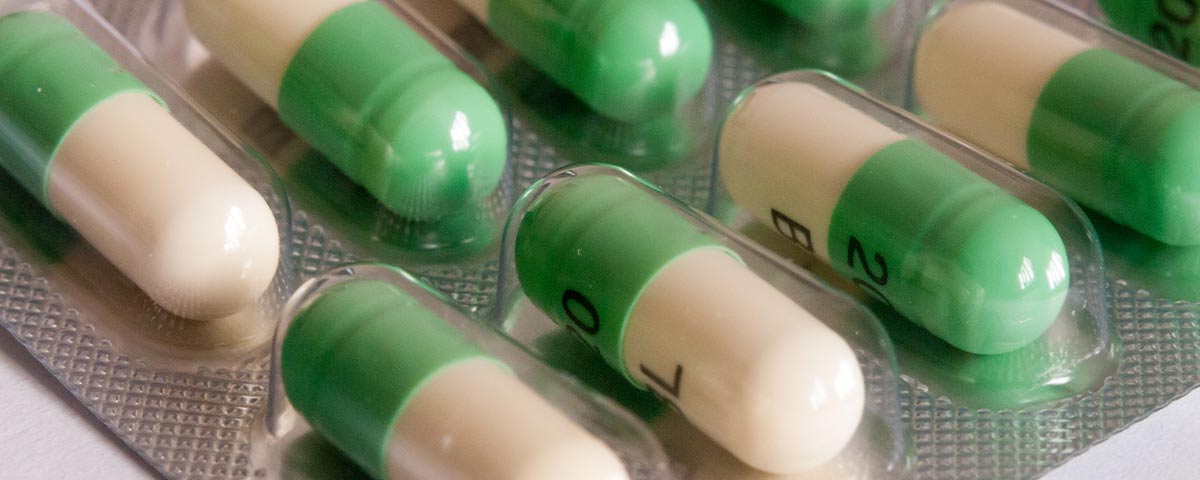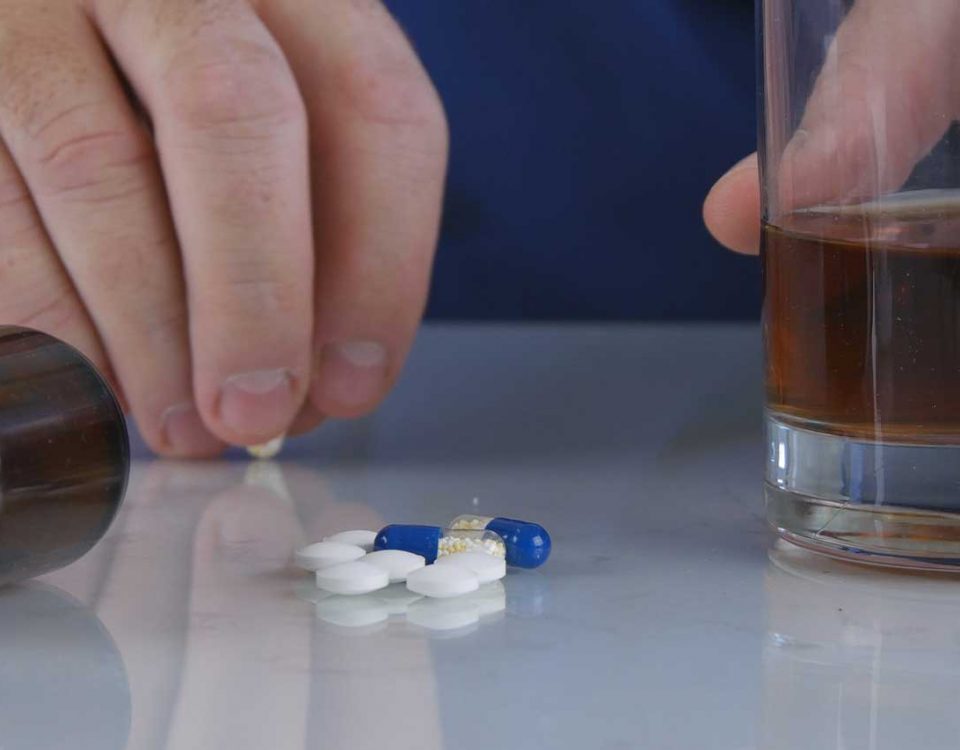Prozac is the brand name for fluoxetine. It’s an antidepressant that’s prescribed long-term to treat symptoms of major depressive disorder. It specifically belongs to a class of drugs called selective serotonin reuptake inhibitors (SSRIs), which are designed to activate the release of and prevent the reuptake of a chemical called serotonin in the brain. Although effective when used correctly, using Prozac doesn’t come without its risks. For instance, taking Prozac and alcohol together can be harmful, so much so that doctors warn patients about this combination. Banyan Treatment Centers Stuart is here to go over these concerns and how to avoid complications related to this phenomenon of polysubstance abuse.
How Prozac Works
Prozac is one of the most prescribed antidepressants in the United States. As an SSRI, it works by inhibiting the reuptake or reabsorption of the neurotransmitter serotonin. At high levels, this chemical elevates mood and produces an overall sense of well-being.
Other types of antidepressants that do this include sertraline (Zoloft), citalopram (Celexa), paroxetine (Paxil), and escitalopram (Lexapro). Prozac allows serotonin to flood the brain, elevating the individual’s mood and reducing symptoms like nervousness, anxiety, and restlessness. Overall, Prozac uses include:
- Bulimia nervosa
- Major depressive disorder (MDD)
- Obsessive-compulsive disorder (OCD)
- Panic disorder
- Treatment-resistant depression
Prozac may also be combined with other medications to manage symptoms of bipolar disorder. Due to its effectiveness in reducing anxiety and improving mood, it serves as a multifunctional medication.
Can You Drink Alcohol While Taking Prozac?
No, you cannot drink alcohol while taking Prozac. Alcohol is a central nervous system depressant, meaning it slows down the brain’s functions and produces a sedative effect. By elevating the neurotransmitter GABA, alcohol reduces communication between nerve cells, making you feel relaxed and calm.
Common side effects of alcohol include trouble thinking, impaired judgment, anxiety, and decreased motor skills. Prozac can also produce adverse effects on its own, including difficulty sleeping, nausea, nervousness, heart palpitations, flu-like symptoms, and fatigue. Serotonin syndrome may also occur if Prozac is taken in higher doses than prescribed. This is a condition that occurs when serotonin levels are too high.
Most, if not all, medications are dangerous when combined with alcohol, including Prozac. You cannot take Prozac mixed with alcohol, as both substances can exacerbate each other’s effects and impair various functions like breathing, coordination, motor skills, concentration, and judgment. Alcohol can also elevate serotonin levels, so the risk of serotonin syndrome may be even greater due to Prozac and alcohol consumption.
Prozac and Alcohol Side Effects
Interactions between Prozac and alcohol largely consist of sedative effects, such as extreme drowsiness. When combined, both substances intensify the side effects of the other. Some common side effects of Prozac and alcohol include:
- Sedation
- Confusion
- Drowsiness
- Sudden fatigue and weakness
- Depression
- Feelings of hopelessness
- Suicidal thoughts
Alcohol and Prozac together can also impair your judgment, make concentrating difficult, and even cause loss of consciousness. Alcohol can also impair fluoxetine’s ability to treat depression or any other condition that it’s being taken to manage, which can lead to worsening symptoms, including suicidal thoughts.
As a result, a person who’s drinking on Prozac may think that they must take higher doses of their medication to balance out the effect. In reality, this can lead to serotonin syndrome, and yes, you can overdose on Prozac as well.
Additionally, drinking alcohol on Prozac is considered a form of drug abuse, as both the Food and Drug Administration (FDA) and prescribing doctors advise against this combination. Despite the dangers, many people take alcohol or drugs with antidepressants in an attempt to get high or produce extreme sedation.
This can lead to elevated serotonin levels, which can produce uncomfortable and life-threatening side effects. Overdosing on either substance is also possible, and the risk of an overdose is usually higher when multiple substances are taken at once.
Can I Skip a Dose of Prozac to Drink?
No, you should not skip your dose of Prozac to drink “safely.” Not only does the medication remain in your system for a certain period (which can lead to these reactions,) but symptoms of the disorder fluoxetine are meant to treat and can resurface. You may also experience withdrawal symptoms if you’ve been taking Prozac for a while and skip a dose.
Furthermore, if Prozac is not taken as directed, the symptoms of the underlying condition it is meant to treat may return. Prozac is used consistently to treat mood disorders, including depression, panic disorder, obsessive-compulsive disorder (OCD), and other mood-related conditions. Missing a dose throws off the medication's stability in your body, which could cause these symptoms to flare up again.
Prozac withdrawal symptoms can occur when doses are skipped, in addition to the possibility of symptom return, particularly if the medication has been taken for a long time. Flu-like symptoms, headaches, nausea, irritability, and dizziness are some common withdrawal symptoms. These symptoms highlight how crucial it is to follow a regular prescription schedule to keep your body's drug level steady and prevent the start of withdrawal symptoms.
In the end, your general health must choose proper medication management over alcohol usage. It is advised that you speak with a healthcare provider about any worries or issues regarding your prescription schedule and lifestyle decisions. To effectively manage your mental health while reducing potential risks and consequences connected with drug use, you must adhere to prescribed guidelines.
Can You Get Addicted to Prozac?
Prozac is not regarded as addictive in the conventional sense and is instead categorized as a selective serotonin reuptake inhibitor (SSRI). Prozac does not create a demand for its effects, in contrast to drugs that cause physical dependence and withdrawal symptoms when stopped. It's crucial to remember, too, that abruptly ceasing Prozac use might cause withdrawal symptoms, particularly after prolonged use. Headaches, jitters, nausea, and dizziness are a few of these symptoms. Cessation should be done gradually and under the supervision of a healthcare provider to reduce the possibility of withdrawal symptoms.
Despite not being addictive in and of itself, the efficacy of Prozac in treating a range of mental health issues can result in a psychological dependence on the drug. People may become dependent on Prozac to maintain emotional stability, and suddenly stopping the drug may cause the symptoms it was intended to treat to resurface. To guarantee a well-rounded and efficient approach to drug management, people on Prozac must be open and honest with their healthcare providers about their treatment plan, any concerns, or changes in their mental health status.
Help for Alcohol and Prozac Abuse at Banyan Stuart
Mixing alcohol with medications, especially if your doctor has advised against it, is a sign of a deeper problem. If you’re struggling to control your drinking, or you find yourself taking higher doses of a medication than prescribed, you may be addicted.
Fortunately, our Stuart, Florida, Banyan treatment center offers various levels of addiction treatment that can help you or a loved one stop abusing drugs or alcohol and develop a sober lifestyle. With the help of programs like our inpatient drug program, clients receive round-the-clock care for their withdrawals as well as therapy and counseling to determine the source of their addictions. Also, they help them develop sober skills.









